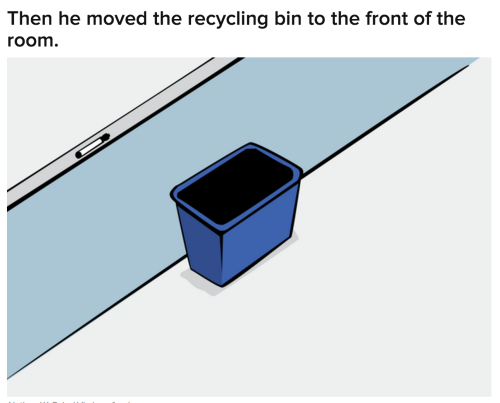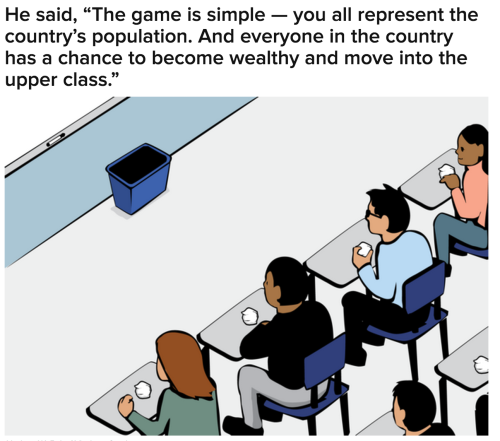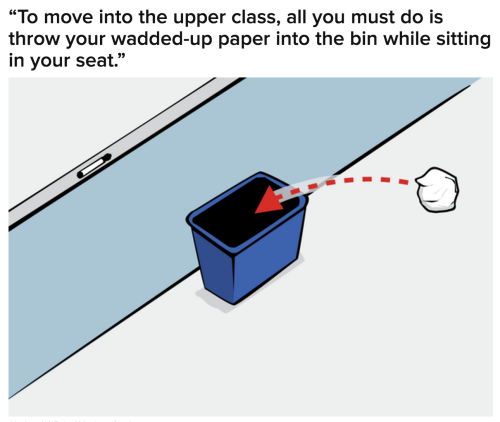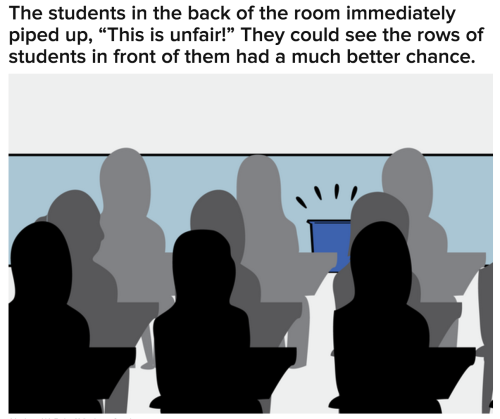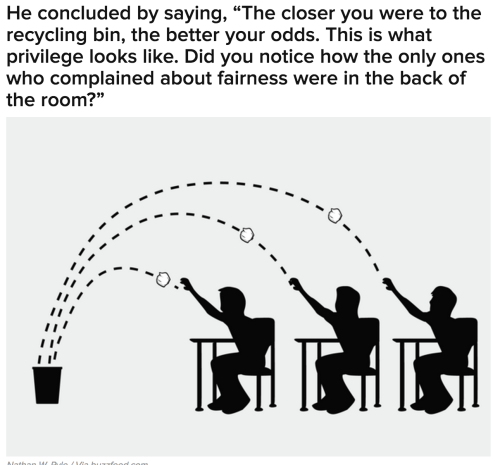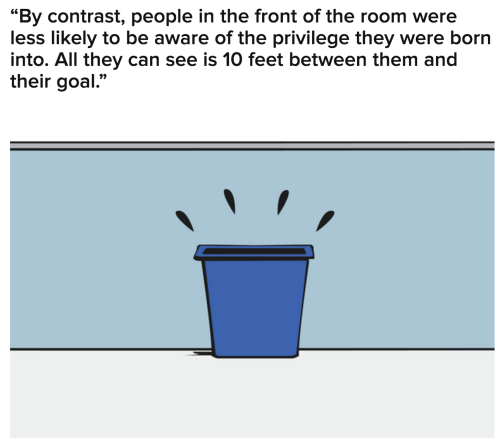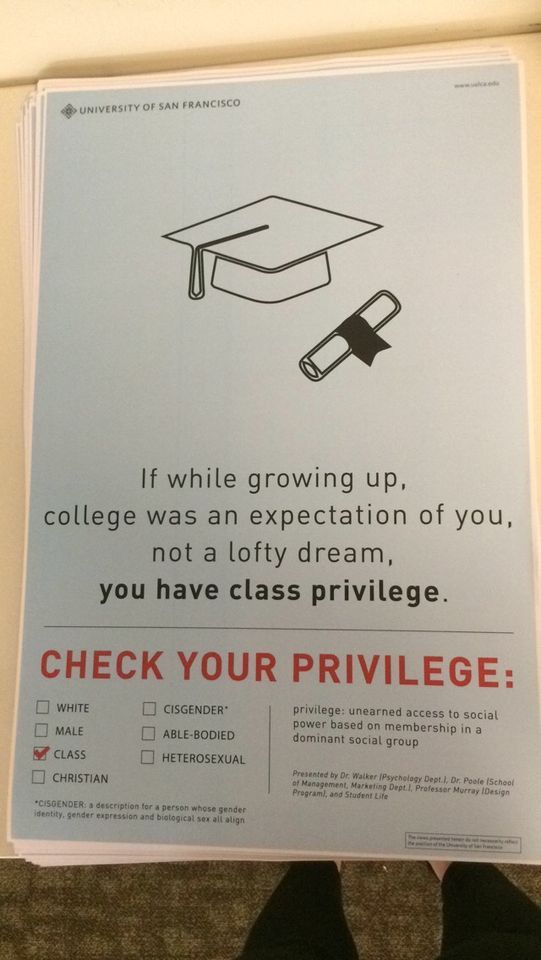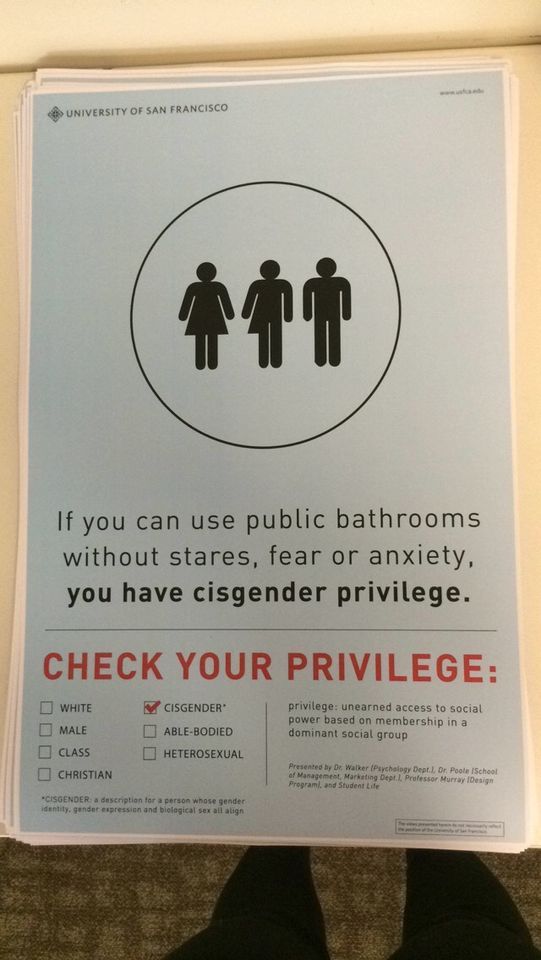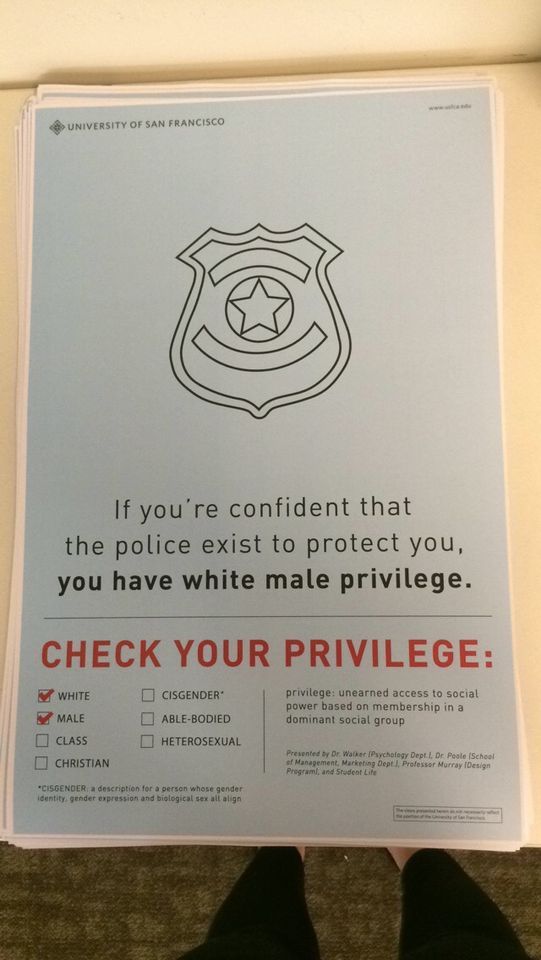Privilege - Tumblr Posts
It’s funny seeing cis (usually white) women saying shit like “cis privilege isn’t a thing” or “where’s my cis privilege?”. First off it’s annoying to see cis white women act like they’re the most oppressed people in society, and also being trans can be a literal death sentence even in more developed countries like the UK or US. Cis women don’t have an attempted suicide rate of 40% due to society not being accepting of them. trans people do. Cis women don’t get murdered because someone was attracted to them and then found out they were “lying”. Trans women do. Cis women aren’t getting their rights taken away from them like trans people are. This is cis privilege. You have the privilege of going through life without the hardships of society not accepting you as you are and actively working to eradicate people like you. Yes, women are oppressed -women of colour especially- but being able to call yourself a women without people objecting is a privilege.
Fascists are so fucking stupid, and the depths at which they don’t realize from their brainwashing is both disturbing and illuminating. Their acts of violence and sedition gets them on a no-fly list. Suddenly, they’ll use their privilege to push for high-speed rail because Disney World’s a long drive from Nebraska.
One thing I love about cabaret (the movie), is how it understands privilege better than a lot of people nowadays. Like, yes, the cabaret making fun of the Nazis is unequivocally a good thing, but while they're putting on shows and laughing with the crowd, the Jewish lady who lives down the street has to hide in her home while the Nazis are chanting "Juden!" Outside and leaving the corpse of her dog on the stairs, and she can't really join the fun, can she? And it doesn't mean they're doing something wrong, this is just how power disparities work, and we should at least be aware of that.
Okay but like- did anybody else who was born as some combination of white/rich/male (this one specifically isn't from my experience but the same discourse applies)/able bodied/from a loving family... But then also autistic (in a way that could be masked for a very long time as "just being weird" with the added bonus of ending up lowkey highkey believing you're a failure of a human being), who went online at an age where they were WAY too young for that, got into Tumblr radical leftie discourse, heard people say words that, if taken literally, mean that they want you dead for your privileges, took that literally, because they were an autistic child who didn't understand the internet yet, and had that mess up their sense of self worth (which was already not doing great thanks to a, so far, entire life of outsiderness and social isolation, yeah?) so badly that to this day it's imprinted on some corner of their belief system "my privileged identities make me an inherently evil oppressor, if I killed myself all my unjust privileges could go to the people who actually need them" in a way that they never quite managed to unlearn, no matter how obvious the ridiculousness of it has became as they grew up?
... Or was it just me?
... Don't give internet access to kids that are still in elementary school.
Because we still live largely segregated lives, such networking fosters categorical inequality: whites help other whites, especially when unemployment is high. Although people from every background may try to help their own, whites are more likely to hold the sorts of jobs that are protected from market competition, that pay a living wage and that have the potential to teach skills and allow for job training and advancement. So, just as opportunities are unequally distributed, they are also unequally redistributed. All of this may make sense intuitively, but most people are unaware of the way racial ties affect their job prospects. When I asked my interviewees what most contributed to their level of career success, they usually discussed how hard they had worked and how uncertain were the outcomes — not the help they had received throughout their lives to gain most of their jobs. In fact, only 14 percent mentioned that they had received help of any kind from others. Seeing contemporary labor-market politics through the lens of favoritism, rather than discrimination alone, is revealing. It explains, for example, why even though the majority of all Americans, including whites, support civil rights in principle, there is widespread opposition on the part of many whites to affirmative action policies — despite complaints about “reverse discrimination,” my research demonstrated that the real complaint is that affirmative action undermines long-established patterns of favoritism. The interviewees in my study who were most angry about affirmative action were those who had relatively fewer marketable skills — and were therefore most dependent on getting an inside edge for the best jobs. Whites who felt entitled to these positions believed that affirmative action was unfair because it blocked their own privileged access.
Nancy DiTomaso, the vice dean for faculty and research and a professor of management and global business at Rutgers Business School (via evanwilhelms)
I think part of this stems from an interesting perceptual effect (as well as other various forms of .defending an established worldview for various reasons). As is often commented on the privileged don’t see their privileges so they attribute the benefits they have to what they do see, ie their hard work. Which is also why all the numbers and work showing more celearly just how the obscured distributed system of education, networking, and inheritance maintains and reinforces divisions is so interesting and eyeopening..if your livelihood and self worth aren’t directly dependent upon such a system so much that its less mental effort to fight changes than to accept that those system aren’t fair and you proabaly shouldn’t have those benefits =P
How to be an ally.

The point is not that we should feel sorry for women with a personal chef and a house in the Hamptons. Rather, my goal is to illuminate who gets to be both wealthy and morally worthy in our society. In the modern-day US, our concept of meritocracy is inherently gendered. This means that women bear the brunt of negative judgments about wealth—and raises questions about what women “deserve,” and on what basis, that cut across social class.
…
Not bringing in money left some of these women feeling vulnerable. A parenting expert told me, of the wealthy stay-at-home moms she worked with, “They feel so guilty that they’re wasting their degrees… They feel so ‘less than.’”
Helen (a pseudonym, like all other names in this piece), who had been an investment banker and had left her career reluctantly, told me, “[I’m] well-educated. I had a career. You know, where is all that now?” She said she sometimes felt like she was “working for” her husband. She added, “There are power dynamics, where he’s the breadwinner now, and I’m really not. And yet, I do so many things for the family that you can’t put a number on it.” Her unpaid labor is hard to measure, and therefore hard to appreciate.
Bridget worked part-time, bringing in much less money than her husband did. She said he gave her “a hard time” about spending but felt free to buy what he wanted. She put this dilemma succinctly, saying, said, “I can’t make enough money to impact our life. And how am I ever going to make enough money to deserve something, if I don’t just say I worked for this and I made this money?’” By bringing in the money, men often get the power to decide how it is spent. Equally important, they also get the right to feel like they “deserve” what they have.
The other reason wealthy stay-at-home mothers are vilified is that they are imagined to be excessive and self-indulgent consumers, in a world where over-the-top consumption is often seen as a moral failing. Women, more associated with consumers in general, bear the brunt of this kind of judgment, especially when they are thought to be spending only on themselves.
…
Stephanie prided herself on being an attentive mother, making Halloween costumes for her son and baking “beautifully decorated” cookies for his school. She also explained in detail the stresses of managing their home in Manhattan and their weekend home, saying, “I’m the one that deals with all of it.” But, she said, her husband “thinks that I’m, you know, eating bon bons all day. It’s hard.” He also hassled her about spending too much, though she protested that she bought clothes at Target and cut her own hair and nails, while he splurged on expensive meals for his friends.
When the roles were reversed, women did not exert the same judgment over their husbands’ spending. The women I interviewed who earned more than their husbands, or who brought the bulk of the money into the household through inheritance, described this state of affairs as threatening to their husbands. Rather than control their husbands’ expenditures, they went out of their way to make men feel like they were contributing too, by letting them control the family’s investments or by legally turning over some sum of money to them. So the power dynamic here is about masculinity—not just about who brings home more of the bacon.
i feel like reading this article is a good way to test whether or not you have fully accepted that misogyny does not get canceled out by anything, including obscene wealth
ok but like. there are two different types of privilege. there's type a "everybody should have this, but some people don't" and type b "nobody should have this, but some people do"
there's having parents who can pay for your application to any college, and then there's having parents who can bribe your way into any college. there's owning your own home, and then there's owning 50 houses and getting rich off hoarding a vital resource. there's not fearing for your life whenever cops are around, and then there's being the cop and being allowed to murder anyone at any time.
idk i just feel like that's an important distinction to make.

#whiteprivelege #whiteprivelegeisreal #whitepriveleged #race #racism #racisminamerica #racismisreal #racismisavirus #racist #racistcops #racisttrump #privelege #priveleged #privilege #privileged #america #us #usa🇺🇸 #usa #unitedstates #unitedstatesofamerica #cops #copssuck #police #policereform #trump #trumpsupporters #politics #political #left https://www.instagram.com/p/CBTRqTnpP1k/?igshid=6ng5hjiw8sii
I hate the phrase ‘respect isn’t given, it’s earned’, because it’s often used by people whose understanding of respect is fundamentally wrong. Respect means treating someone like a person, but there are way too many people out there who think that respect means treating someone like an authority. This has led to a culture of people who say ‘respect isn’t given, it’s earned’, but what they mean is, ‘If you do not submit to my whims without question, I will not treat you like a person.’
College Debt: A Political Approach to a Standard Issue
This morning I'm in a semi-good mood, despite the chirping noise from my smoke detector waking me up grumpily. I walked to center campus, bought a cup of joe at Kangaroo (its addictive and tastes so good) with my refill up (saving $$), find a table on the 2nd floor in Belk library to start studying/homework/prepping for the upcoming week and then I go online to check out what's going on in the world/country today. I came across this article "College Costs, Battled a Paycheck at a Time" via NYTimes (Click HERE for link).
The article discusses a few students who each have different situations both financially and personally. The main argument I found was in three parts: 1. you don't have to be enslaved to your parent's decision for you to go to college, 2. additionally you don't have to be enslaved to your parent's financially for college or otherwise, and 3. if you decide to pay your own way through college you do NOT have to contract debt.
Another interesting perspective addressed in the article was the idea that us as student or soon-to-be students do have the power over our own lives even in high school. I remember being one of the few out of my groups of friends that had a job throughout my high school career. It wasn't working because I necessarily needed it or was "being forced" to get a job based on my mom's reasons to do so. I wanted to start to have control over my own life. I wanted to have something other than grades and educational achievements to be proud of. I wanted engage in something that would help develop professional skills, embark on my own learning experience that may or may not strengthen my qualifications for future jobs.
Of course in my situation I did not think like most of my H.S. colleagues in suburbia. I wasn't anxious about the rest of my life. I was trying each day to live and enjoy my high school years. I was involved in a number of extracurriculars because I have a TON of PASSIONS :) That's my personality. I put my time, patience, energy and determination to activities/causes/professions I felt reflected my own ideas/perspective/opinions/passions. I'm not saying that my colleagues or everyone in H.S. needs to do that but I think its important to start learning about yourself and what makes you happy/what makes you you instead of living a life that isn't yours.
I had a very IN-DEPTH convo with my mom over "fake" break about this very subject. I am not only passionate but enraged at how the leaders/teachers/people in charge of the education system from middle school onwards are SO narrow-minded. I remember the day we had a general assembly the first week I started classes at Mt. Hebron middle school. These people were telling me in short: who I was right now isn't important, its what you are in the future that matters. (Now in college, I find that to be a lie too.) They told us that college is where we need to focus, thats the goal. All of my education from that point on was intended preparation for the college process (i.e. SATs/ACTs, college application, visiting, etc). I empathize with middle school & H.S. students who feel so lost, so misunderstood, so rejected from all the people and places they should feel the three S's: safe, secure, and supported.
*Soapbox moment but its an interesting perspective I promise :)
So what about students? Actually they are not JUST STUDENTS, they are people, unique individuals with a variety of talents and skills. So what about those people who don't fit into the small scope - those who are "meant" or "better suited" or encouraged to go to college based on their passions - i.e. doctors, lawyer, engineers, etc. However, even the individuals who have a remote interest/passion in those areas what is so wrong with letting them choose for themselves? See if that's what you really want to do BEFORE you go crazy, going through the HELL of the college process, spending all that money (initially, college app fees, transcript fees, a whole ton of fees) to see if you qualify for college? Why can't we encourage people to investigate their passions with action - internships while working or not working throughout H.S.? What so wrong about saying its okay if you choose not to go to college? What is wrong with that?
I remember the college jargon used over, and over, and over again throughout grades school. I was constantly hearing college, college, college and never anything else. I often thought, being a person who didn't see college as the OBVIOUS option after H.S., what about me? I know people who become successful and are happy and never went to college so if I follow them I'm nothing??
Basically, if you don't jump onto the college-track you automatically are an outcast. You are discarded, you simply don't matter. WHAT??? The arts is one professional track that doesn't require secondary education. I know with absolute certainty that education in the arts is one thing but EXPERIENCE is the far more superior. Can't that be encouraged in grade school in tandem to the "traditional" college crap?
Example: Ironically enough even big-star rappers like Jay-Z remark the fact that he dropped out of H.S., skipped college and still made it big ("NYMP" album Vol. 3... Life And Times Of S. Carter).
The same is the case when you are IN COLLEGE! They continue to shove the graduate/doctorate/law school rhetoric down our throats. HELLO?!?! If most of the students in college are coming from the years of hearing you are nothing until you GET to college doesn't it sounds CRAZY to continue to promote that attitude to students in college: "you're still nothing until you get more education and oh, by the way you need experience too so fit that in somewhere."
Relating back to the article's argument, these are students/individuals that took responsibilities and basically their life, their future in their own hands. Steve and Zach understand that in order to get to where they wanted to be, without debt, they needed to be uncomfortable, not overindulge or over-expend on already limited resources, make compromises in order to have a better future for themselves (and their families - Steve's wife and children). And in reality, they have better relationships with their parents because there is no resentment or expectations (for the most part). I see too many college students that are in debt of their parent on top of their financial burden of college-debt.
I would love for those of you who read this to please comment a response. Its important for me to hear different arguments, have a civil debate on this topic, get it out in the open. I believe its one of the only ways we'll make real changes.


